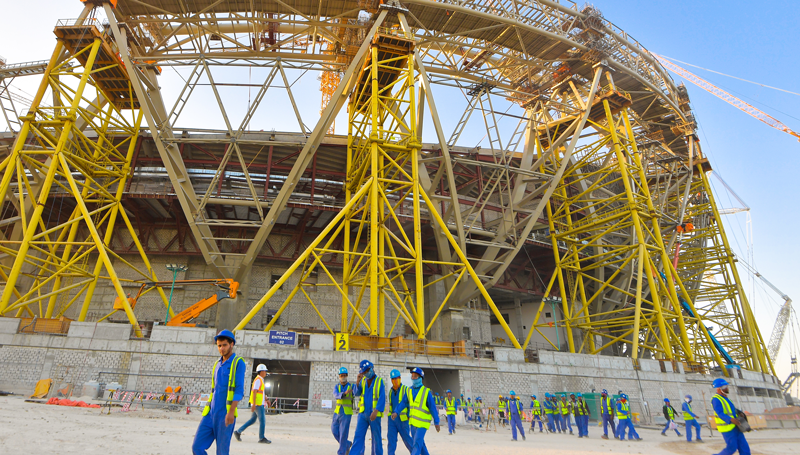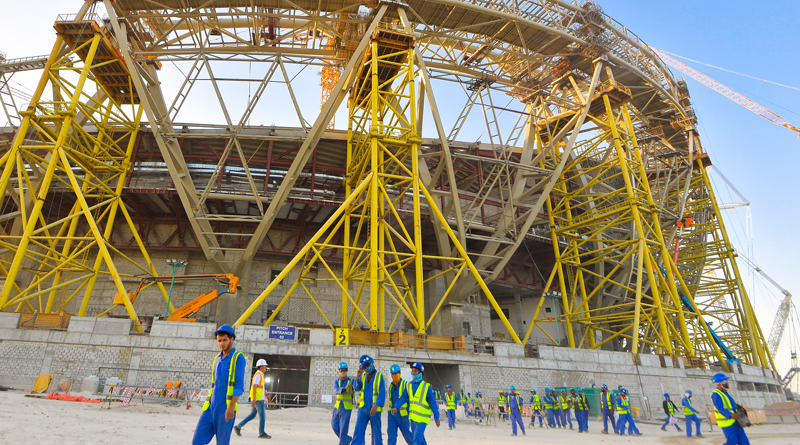BELGIUM AND EUROPE ARE WORKING ON A LEGAL FRAMEWORK

The European Commission and the Belgian Parliament are planning to implement mandatory integrated care, forcing companies to respect human rights, labour rights and environmental standards throughout the entire production chain of goods and services they offer. These chains have become very complex in the global economy. It is not that simple to gain insight into them, let alone to know where the problems lie.
“Respect for people and the environment should be more than just words”
“It is likely that your clothes were manufactured in unsafe conditions, that your smartphone contains minerals mined by children and that your chocolate was produced by means of slavery. It is unbelievable how many products are still being sold that are associated with human rights violations in the European Union in 2021, where human rights are so important,” according to Laura Eliaerts from ACV-CSC International. “This does not just concern production companies in distant countries,” adds Annick Aerts from the international ACV Puls department. “Numerous people are forced to work in demeaning circumstances here as well. Couriers, for example, have to deliver faster and cheaper and be more flexible.” Together with NGOs like 11.11.11 and WSM, ACV launched a campaign earlier this year to increase the pressure on Belgium and Europe.
Growing sensitivity
The good news is that sensitivity to everything connected with fair trade and sustainable economy has grown during the past few years. That is largely the result of pressure from consumers who ask questions about the products they buy or the services they use. Where was my T-shirt made? How green is my energy? How much blood was shed in the World Cup stadiums in Qatar?
More and more companies are evaluating their production chain in response to their customers’ reactions. For example in the textile industry, a lot has changed already under pressure from the Clean Clothes Campaign. The figures showed that the salaries of employees at the bottom of the chain amount to as little as 7.8% of the price of that nice jumper you can buy in the shop. However, the race to the bottom is still going on. “Western producers must also have the courage to question their own methods and critically review their purchase prices and delivery times,” Laura Eliaerts explains. “Demanding better labour conditions from the supplier, but at the same time continuing to demand extremely low prices and unrealistic delivery times, that is the world upside down.”
Belgium and Europe
In France, legislation on integrated care has been in force for a few years now. Last month, a bill on integrated care was passed in Germany. European Commissioner for Justice Didier Reynders announced a European proposal for this autumn. In the meantime, 60 Belgian companies wrote an open letter to ministers Kitir and Dermagne to ask for legislation on integrated care. They want to assume the responsibility for their production chain, but on the condition that everyone abides by the same rules. They want to eliminate unfair competition by players not following the rules.
Annick Aerts is hopeful, but not naïve. “After years of non-binding statements about socially responsible entrepreneurship, the chance of achieving a statutory regulation is now bigger than ever. But we do not know yet how far that legislation will go. The
Belgian bill submitted by PS and Vooruit looks promising. It still has to be discussed in parliament. Of course, there is also a strong lobby that does not want to make the law too strict. We remain vigilant. We understand that we will have to keep pressuring politicians to achieve results.”
The Belgian bill also includes a role for trade unions, who could help oversee the care plan of the company and the conditions in the production chain during the social dialogue within companies. Didier Reynders also called the trade unions ‘allies’ in the integrated care story. “Integrated care should be on the agenda of the social dialogue,” Laura Eliaerts emphasises, “because the trade unions’ role is always to defend and enhance the employees’ rights. If the supply chains are international, then so is the social dialogue. Thanks to employees working together across borders and consulting with companies, it will be possible to have fair products, without child labour or other violations.”
Never Work Alone 2021 | Author: Jan Deceunynck | Image: Photonews

